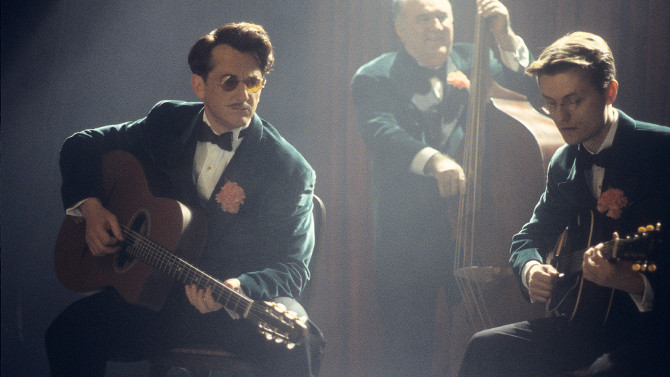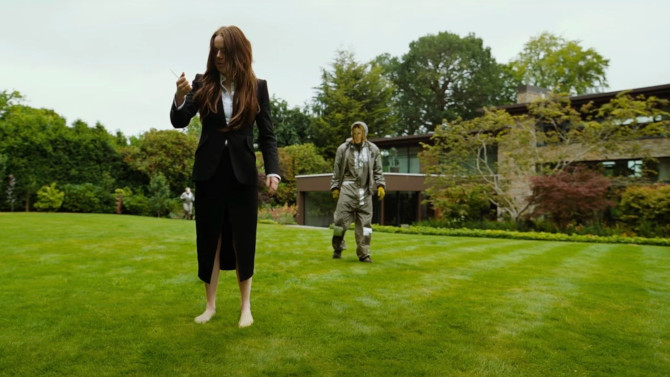
A Bee in Your Bonnet or: A Bug in the System
Sometimes a movie doesn’t fit nicely within a genre box. In today’s case, the film touches on bizarre sci-fi dialogue, brings forth some satirical dark comedy, plenty of drama and thrills, and centers on a crime... in other words, it’s another unique vision from Yorgos Lanthimos (The Lobster; The Favourite) – titled Bugonia (2025). . . inspired by the 2003 South Korean motion picture Save the Green Planet! by Jang Joon-hwan. Falling down the rabbit hole with Teddy (Jesse Plemons – Hostiles; Game Night) and his autistic cousin/helpful sidekick Don (Aidan Delbis – an excellent amateur casting of an autistic man), they have done copious amounts of research on the recesses of the internet into an alien species called the Andromedans – that are supposedly secretly residing amongst us while pulling the puppet strings.
-

A Bee in Your Bonnet or: A Bug in the System
BugoniaJanuary 17, 2026Sometimes a movie doesn’t fit nicely within a genre box. In today’s case, the film touches on bizarre sci-fi dialogue, brings forth some satirical dark comedy, plenty of drama and thrills, and centers on a crime... in other words, it’s another unique vision from Yorgos Lanthimos (The Lobster; The Favourite) – titled Bugonia (2025). . . inspired by the 2003 South Korean motion picture Save the Green Planet! by Jang Joon-hwan. Falling down the rabbit hole with Teddy (Jesse Plemons – Hostiles; Game Night) and his autistic cousin/helpful sidekick Don (Aidan Delbis – an excellent amateur casting of an autistic man), they have done copious amounts of research on the recesses of the internet into an alien species called the Andromedans – that are supposedly secretly residing amongst us while pulling the puppet strings.
-
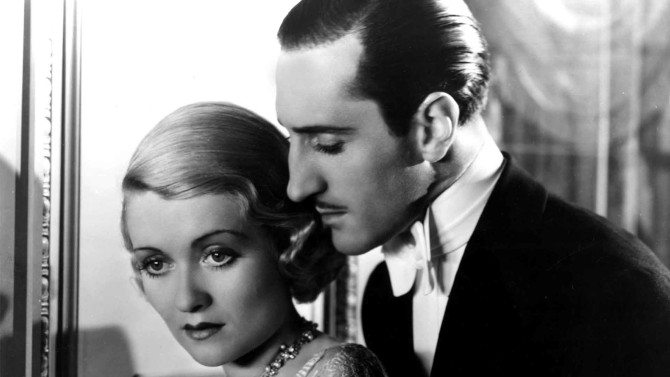
To Paris and Back Again
Sin Takes a HolidayJune 22, 2025No one in their right mind would ever cast one of the biggest young starlets of the 1930s – Constance Bennett, to play an ordinary plain Jane secretary in a movie. . . but, of course, that’s exactly what Hollywood decided to do in 1930 with the Pre-Code romantic dramedy Sin Takes a Holiday, directed by Paul L. Stein. Bennett plays Sylvia Brenner, a near constant on-call secretary working late nights for a snooty playboy divorce lawyer named Gaylord Stanton (Kenneth MacKenna). Liking nothing better than playing the field with both married and unmarried women (though it seems like he prefers the former better), and then having some fun joking around with his group of friends, including the somehow even snootier barrister Reggie Durant (Basil Rathbone – this at the end of his matinee idol first run... making it big five year later... add another four years and he’d take on his most famous role of Sherlock Holmes), this lifestyle soon backfires on him after a divorcing dame client, Grace Lawrence (Rita La Roy), is looking for a proposal from him as she starts her immediate rebound.
-

Wails of a Waning Friendship
The Banshees of InisherinFebruary 9, 2023Coming off like a fatalistic fairytale, Martin McDonagh’s fourth feature film, The Banshees of Inisherin (2022), has been deemed a pitch black tragicomedy, whereas his other films (In Bruges, Seven Psychopaths, and Three Billboards Outside Ebbing, Missouri) would more simply be described as dark comedies, or dramedies. Subtly drawing symbolic ties to the Irish Civil War of 1922-23 (it is set in 1923), as well as the long lasting strife known as The Troubles (which took place between the 1960s to 90s), this divide is shown by way of muses Pádraic (Colin Farrell) and Colm (Brendan Gleeson).
-
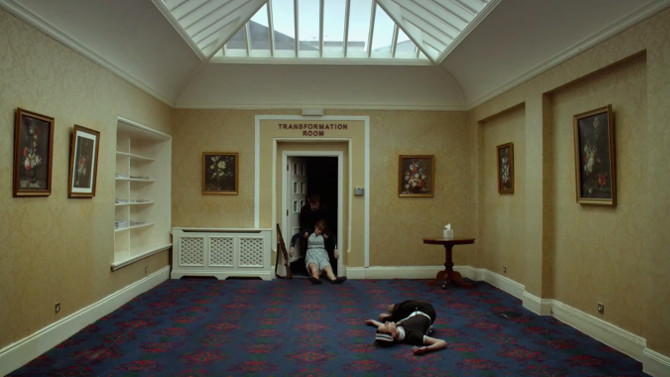
Lobster Trap
The LobsterMay 31, 2020For whatever reason, people are obsessed with love and relationships – celebrity couples, The Bachelor (and its female counterpart), Rock of Love, Love Island. . . the list goes on and on. Then there are those nosey questions from family members – ‘Any prospective dates?’, ‘Are you seeing anyone special?’, ‘What happened to that nice girl you were dating last year?’, ‘When are you going to get married?’. . . as if you can’t be happy unless you are paired with someone. Based on this assumption, Yorgos Lanthimos creates a most fascinating vision of this very world of love and relationships with his 2015 film The Lobster. An absurdist dystopic vision set in a rather similar world to today, Lanthimos (along with his writing partner Efthimis Filippou) set out very strict rules for this alternate reality. In a landscape where everyone must be paired together, those who lose a partner (either to death or separation), are sent to a high end resort – where they have only forty-five days to find a suitable partner to continue their lives. If, for whatever reason, they cannot find someone, they are turned into an animal of their choosing (bonus!).
-
Star Pick with Cliff Williams
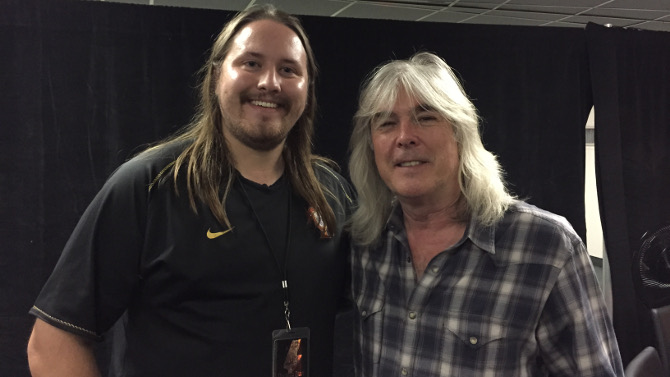 Ray of FlightSweet and LowdownMarch 24, 2020
Ray of FlightSweet and LowdownMarch 24, 2020The bass backbone (and backing vocalist) for AC/DC for almost their entire run at the top of the hard rock game, there is no doubt that Cliff Williams is an icon of the rock world. Joining the band in 1977 (just a few short years after their founding in 1973/74), taking over for original bassist Mark Evans, Cliff, along with drummer Phil Rudd (and Chris Slade – their drummer from 1989-1994 and presently – who has also been interviewed here at Filmizon.com), and Malcolm Young (nephew Stevie Young took over after Malcolm’s death), have been the ever solid rhythmic spine for Angus’ soaring guitar solos and Brian Johnson’s unique vocals (the man took over for Bon Scott after he died in 1980). . . or, as Cliff puts it, “I try to create a bottom layer that drives what our guys are doing on top”. Touring since their 1977 “Let There Be Rock” album, and the bass player on their albums starting with 1978's “Powerage”, there are not many musicians who have been seen or heard around the world more than Cliff. An inductee to both the Australian Recording Industry Association’s Hall of Fame and the Rock and Roll Hall of Fame (as of 2003), he has done it all, and really, there is not much more needed to be said than that.
-
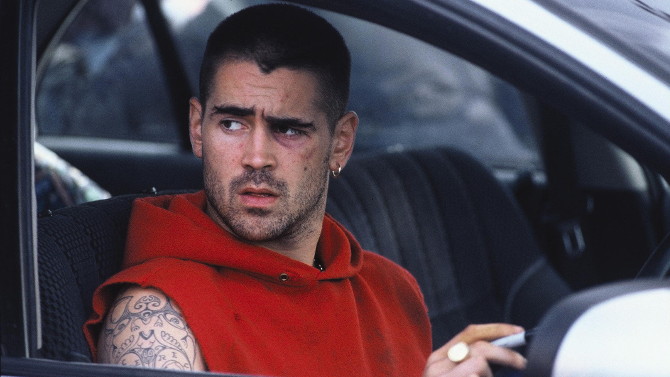
Mission: Interact
IntermissionMarch 20, 2020Like watching a magician shuffle a deck of cards (including jokers) into perfect numerical order, director John Crowley (Brooklyn) takes Mark O’Rowe’s screenplay, which consists of a whopping fifty-four characters (hence the jokers) and eleven separate storylines, weaving them together in wholly interesting ways to make Intermission (2003). What is it about Irish screenwriters that gives them the ability to build these complex stories in clever ways? I really don’t have an answer, but like the works of brothers Martin and John Michael McDonagh, there is a unique essence in this narrative that avoids tropes, Crowley intersecting all of O’Rowe’s stories in an impressive way.

